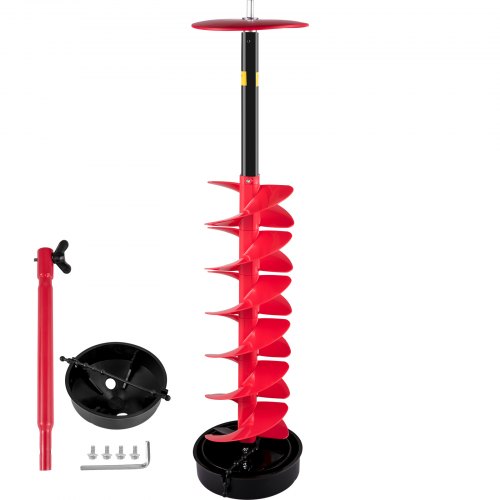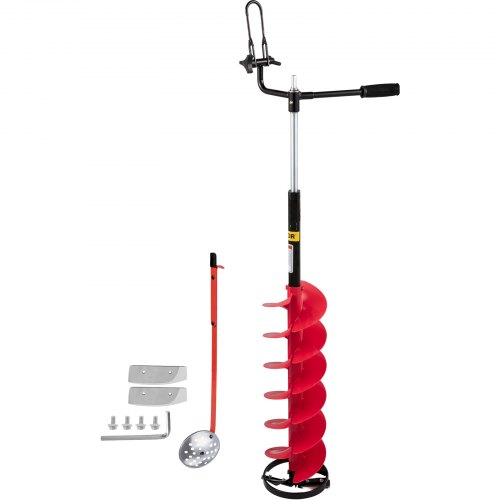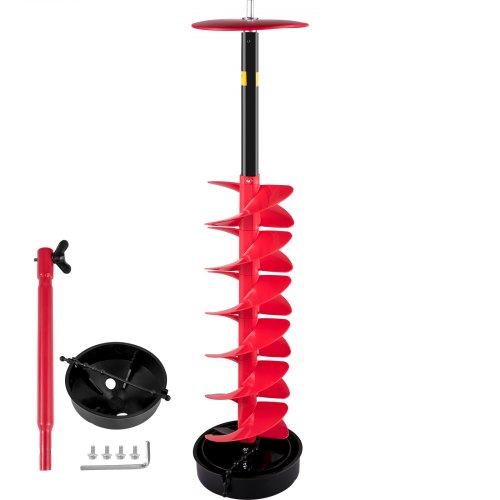 (26)
(26)
 (26)
(26)
 (26)
(26)
Drilling is an essential task in various fields, from construction to DIY projects. Drill bits, the cutting tools attached to drills, play a pivotal role in achieving the desired outcome. They come in different shapes and sizes, each tailored for specific materials and drilling techniques. Understanding the nuances of drill bits can significantly enhance your work's efficiency and precision.
A drill bit comprises several key parts: the tip, which initiates the drilling process; the body, which removes the drilled material; and the shank, which connects to the drill. Each part is crafted to optimize performance and durability.
Drill bits are made from various materials, including high-speed steel (HSS), cobalt, and carbide. The choice of material affects the bit's longevity, cutting ability, and suitability for different materials.
Wood drill bits, such as brad-point and auger bits, have unique designs to prevent splintering and ensure clean holes in wooden surfaces.
Metal drill bits, like twist and step bits, are engineered to withstand the rigors of drilling through metals, providing precise and clean cuts.
Masonry bits, typically made of hardened steel with a tungsten carbide tip, are ideal for drilling into concrete, stone, and brick.
Drill bits come in a range of sizes, measured in either metric or imperial units. Choosing the right size is crucial for the task at hand.
It's important to select drill bits that are compatible with your drill's chuck size. This ensures a secure fit and optimal performance.
Removing debris and cleaning your drill bits after each use prolongs their life and maintains their cutting efficiency.
Store drill bits in a dry, organized environment to prevent rust and damage. A drill bit case or holder is an excellent investment.
Some drill bits come with special coatings, such as titanium or black oxide, to increase durability and reduce friction.
Recent advancements have led to drill bits with unique geometries and features, designed for specific tasks and materials.
Drill bits can be used for more than just drilling holes. They are instrumental in creating custom furniture, home repairs, and artistic endeavors.
Using the right pressure, speed, and drill bit can make your DIY projects more efficient and enjoyable.
In these industries, drill bits are crucial for creating precise holes for fasteners, joining materials, and intricate woodworking.
Precision is key in metalworking. Using the correct metal drill bit ensures clean, accurate holes, essential for quality fabrication.
Always wear appropriate safety gear, including goggles and gloves, when using drill bits to prevent accidents and injuries.
Understanding the proper technique and maintaining your equipment can significantly reduce the risk of accidents.
Assess the material you'll be drilling and the type of work you'll be doing to choose the most suitable drill bits.
You can find a vast array of drill bits at hardware stores and online. Brands like VEVOR offer a wide selection, catering to different needs.
Some manufacturers are adopting greener practices in producing drill bits, reducing the environmental impact.
The use of recycled materials in manufacturing drill bits is gaining traction, contributing to a more sustainable industry.
Technological advancements are continually shaping the future of drill bits, with a focus on efficiency, precision, and material compatibility.
Emerging technologies, such as smart sensors in drill bits, are paving the way for more accurate and controlled drilling experiences.
Whether you're a professional tradesperson or a DIY enthusiast, having the right drill bit is crucial for any drilling task. From choosing the right type and size to understanding advanced features, this guide aims to equip you with the knowledge to make informed decisions.
Visit VEVOR's website to explore a comprehensive range of drill bits suitable for any material and project. With quality, precision, and durability at the forefront, VEVOR offers the ideal solution for your drilling needs.
Don't let the wrong drill bit hinder your project's success. Upgrade your toolkit with VEVOR's top-notch drill bits and experience the difference in your work.
Drill bits come in various shapes and sizes, each designed for specific materials and applications. The most common types include twist bits, ideal for general purpose drilling in metal, wood, or plastic; masonry bits for concrete, brick, or stone; spade bits for making large holes in wood; and forstner bits for precise, flat-bottomed holes in wood. Metal drill bits, often made of HSS (high-speed steel), are perfect for drilling in steel, brass, or aluminum, while wood drill bits often have a pointed tip and wider flutes for efficient chip removal.
Choosing the right size drill bit depends on the nature of your project. First, consider the size of the hole you need to drill. Drill bit sizes are usually indicated in millimeters or inches. For precision tasks, use a drill bit slightly smaller than the hole's desired diameter, and then finish with the exact size for a snug fit. For projects requiring fasteners, match the drill bit size to the fastener size. If in doubt, start with a smaller bit and gradually increase the size until you achieve the desired hole diameter.
Yes, drill bits can be used on various materials, but it's crucial to choose the right type for each material. For instance, HSS bits are versatile for metal, wood, and plastic. Cobalt bits are ideal for tough metals like stainless steel. Masonry bits, with a carbide or diamond tip, are designed for concrete and stone. Using the wrong drill bit can result in poor performance or damage to both the bit and the material. Always check the manufacturer's recommendations for suitable materials.
Proper maintenance can significantly extend the life of your drill bits. After each use, clean the bits to remove any debris or dust. Lubricating the bits with appropriate oil can prevent rust and corrosion. When drilling metal, use cutting fluid to keep the bit cool and reduce wear. Store your drill bits in a dry, organized case to protect them from damage. For dull bits, a bit sharpener can restore their cutting edges, though some specialized bits might require professional sharpening.
It's time to replace your drill bits when they become dull, damaged, or no longer cut efficiently. Signs of wear include difficulty in drilling, excessively rough or uneven holes, and visible damage like chips or bent parts on the bit. Continuing to use worn-out drill bits can lead to poor results and even accidents. Investing in high-quality drill bits and maintaining them properly can minimize the need for frequent replacements.